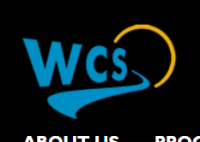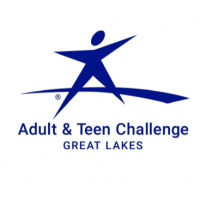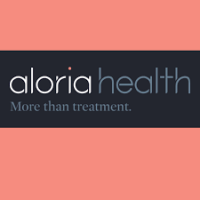
Aurora Medical Center
Drug Rehab Center in Kenosha, Wisconsin
- Mental Health
Aurora Medical Center in Kenosha, WI offers a wide range of mental health care services with a holistic approach, accepted by most private health insurance providers.
About This Wisconsin Facility
Aurora Behavioral Health Center, located in Kenosha, Wisconsin, stands out for its focus on treating various mental health issues. As part of the well-respected Aurora Health Care network, this private rehab facility excels in providing personalized outpatient services tailored to meet the unique needs of its patients, including those struggling with substance abuse and addiction.
Accredited by the Joint Commission on Accreditation of Healthcare Organizations (JCAHO), Aurora Behavioral Health Center prides itself on delivering high-quality care. The center utilizes a broad spectrum of evidence-based treatment strategies to foster patient growth and recovery, emphasizing the importance of individualized care plans.
- Personalized Treatment Programs: Each patient receives a tailored treatment plan to address their specific needs, ensuring a more targeted and effective recovery process.
- Comprehensive Service Range: Aurora offers a variety of services, including outpatient, partial hospitalization, and dual-diagnosis care, catering to a wide spectrum of mental health and addiction issues.
- Holistic and Evidence-Based Approaches: Patients benefit from a mix of therapeutic strategies, from cognitive-behavioral therapy to holistic methods, promoting overall well-being.
Aurora Behavioral Health Center specializes in addressing mental health concerns, alcoholism, opioid addiction, and substance abuse, among others. Treatment methods encompass a blend of individual, group, and family therapy, supported by cognitive-behavioral and holistic approaches, across various levels of care from outpatient to partial hospitalization.
Genders
Ages
Modality
Additional
Accreditations

JCAHO
Conditions and Issues Treated
Levels of Care Offered at Aurora Medical Center
This center offers a variety of custom treatment tailored to individual recovery. Currently available are Outpatient, with additional therapies available as listed below.
Outpatient treatment programs provide drug and alcohol addiction treatment through individual sessions with a counselor, group therapy, 12-step meetings, and other activities to help individuals gain sober living skills. Most programs are designed for those individuals who have completed a medically supervised detoxification program and provide opportunities for clients to begin the process of early recovery.
Outpatient programs also offer a level of medical support as needed and psychological backing through therapy. Clients are encouraged to live at home, though there may be some flexibility regarding this requirement based on the circumstances and needs of each patient.
Outpatient treatment is perhaps the most common type of dual diagnosis program available. It does not pose a significant financial burden on patients. However, it is essential to note that outpatient treatment does not provide the support and supervision given in residential programs. Some addicts may need this level of support to maintain their sobriety.
Therapies & Programs
Therapy sessions focused on the individual addict can provide much-needed guidance as they work toward overcoming their addiction. These types of sessions typically involve guidance from a therapist, who will help addicts identify and process their feelings and cravings.
During these sessions, addicts may develop plans for coping with the triggers that typically lead to relapse and learn how to avoid those triggers during their recovery process.
If you are looking for drug recovery, couples therapy can be a great option. This type of therapy can help rebuild trust and joy in relationships that may have been damaged by addiction. It can also help reduce the dysfunctional behavior in a relationship that may trigger addiction. A patient’s partner will be involved in the process. They can also benefit from therapy, especially if they are trying to live with an addict.
The main goal of family therapy for drug addiction is to create an environment where communication can occur without judgment, hostility, or blame that often occurs within a family.
Family therapy is a type of group problem-solving that aims to improve communication and relationships between the patient, their family, and sometimes friends. The therapist is with the family as they learn to communicate with each other differently, especially with the addict when s/he is using.
The family can learn to reduce their enabling behavior or rally together and support each other during tough times. The patient also learns how to deal with their addiction and maintain sobriety while interacting with the family.
Different types of addiction treatment services are available. Within this article, group therapy is of interest due to its high success rate compared to individual therapy. Group therapy settings are beneficial because they allow recovering addicts to build a strong support network.
Benefits of group therapy are:
- Reduces feelings of isolation
- Immediate access to social support in the form of fellow addicts in recovery
- Lowers risk of relapse
- Increases rate of sobriety
- Builds coping skills that can be applied to everyday life
Trauma Therapy is a form of therapy that involves working with a patient to help them process and understand the past trauma(s) in their life. The idea behind it is that while some people can experience traumatic events and not have lasting psychiatric symptoms, many others will. In these cases, memories of the event get hidden from consciousness but continue to influence how the person processes and copes with things in their life. They may avoid situations that resemble what happened or become suddenly angry or irritated to a situation that reminds them of a past event.
With the help of a therapist, people can go back over memories and experiences. This helps them understand why they are having problems coping with certain situations and how they can change how they think and react to things. This therapy is typically done using techniques such as visualization, discussion, and writing down thoughts and feelings.
Trauma therapists will work with clients to help them understand their past and present relationships. Many times, patients may believe that something is inherently wrong with them or that they are unworthy of love. A therapist aims to correct these negative feelings and behaviors by helping the person realize that their actions do not reflect who they truly are.
One of the main goals of trauma therapy is to help clients express their emotions and talk about what they are feeling. This benefits both to increase awareness of how certain events have impacted them in the past and enables patients to realize that they can make changes in their lives.
Cognitive Behavioral Therapy (CBT) is used by drug treatment centers to help addicts comprehend the causes of their substance abuse and the consequences that follow. Through CBT, clients learn to recognize and avoid high-risk situations and cope with challenging situations when they arise.
CBT treatment often includes a combination of individual therapy, group therapy, lectures, and other activities. The treatment’s goal is to help addicts gain self-control and maintain abstinence from drugs and alcohol over the long term so that an addict can get sober and lead a more productive life.
CBT is particularly effective in helping people overcome their drug problems, especially people whose drug abuse is motivated by self-defeating beliefs and emotions.
Payment Options Accepted
For specific insurance or payment methods please contact us.
Is your insurance accepted?
Ask an expert, call (888) 674-0062
Aurora Health Care Associated Centers
Discover treatment facilities under the same provider.
- Aurora Sheboygan Memorial Medical Center in Sheboygan, WI
- Aurora Behavioral Health Center - West Allis in Milwaukee, WI
- Aurora Behavioral Health Center - Delavan in Delavan, WI
- Aurora Medical Group in Oshkosh, WI
- Aurora Behavioral Health Center - Neenah in Neenah, WI
Learn More About Aurora Health Care Centers
Additional Details
Specifics, location, and helpful extra information.
Kenosha, Wisconsin 53142 Phone Number(877) 666-7223 Meta DetailsUpdated April 15, 2024
Staff Verified
Patient Reviews
There are no reviews yet. Be the first one to write one.
Kenosha, Wisconsin Addiction Information
Wisconsin has some of the highest rates in the United States for both adolescent and adult substance abuse. Since 2009, the state has been experiencing the same escalating rates of drug abuse and addiction as the rest of the country. The major concerns are the misuse of prescription painkillers and the escalating number of deaths due to alcohol-related liver disease.
8% of Kenosha residents reported using illicit drugs in the past month in 2021. 1 in 10 residents needs treatment for an alcohol or drug problem. Underage drinking is also a problem in the city. In 2021, about 28% of Kenosha high school students reported drinking alcohol in the past month. Treatment centers offer both inpatient and outpatient programs, as well as a variety of specialized programs.
Treatment in Nearby Cities
- Stoughton, WI (68.4 mi.)
- Jefferson, WI (52.7 mi.)
- Neillsville, WI (190.9 mi.)
- Menomonee Falls, WI (42.8 mi.)
- Chippewa Falls, WI (237.2 mi.)
Centers near Aurora Medical Center



The facility name, logo and brand are the property and registered trademarks of Aurora Medical Center, and are being used for identification and informational purposes only. Use of these names, logos and brands shall not imply endorsement. RehabNow.org is not affiliated with or sponsored by Aurora Medical Center.





